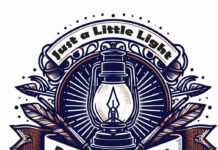WASHINGTON — One by one, almost 20 members of Congress stood before the International Trade Commission on Tuesday and described in stark terms the threat to the U.S. newspaper industry.
Republicans, Democrats and an independent representing every region of the United States displayed rare agreement: A U.S. tariff on Canadian paper imposed by President Donald Trump’s administration represents an attack on the First Amendment.
The Senators and House members testified that a preliminary tariff on uncoated groundwood paper used for newsprint has raised prices up to 30 percent, and could bring about the demise of small community newspapers and cutbacks at larger daily papers.
U.S. Sen. Johnny Isakson, R-Ga., noted the rare moment in which members of Congress were defending the same newspapers that ask tough questions and hold them accountable.
“I never thought I was going to say some of the things I’m going to say,” Isakson said, as he began to address the commission. “The threat of losing the newspaper in this country is a tremendous threat to the First Amendment.”
Isakson explained why he thought newspapers are important, noting that he once ran a real estate brokerage that was the second-leading advertiser in the Atlanta Journal-Constitution.
“Printed newspapers remain a vital part of our country’s free press, which is a key component of our democratic governance and civic life,” Isakson said. “At the local, regional and national level, these papers help us understand and provide necessary context to the events unfolding here at home and across the globe.”
Rep. Brian Higgins, D-Buffalo, told commission members that New York printers and publishers had to take “severe cost-cutting measures” because of the tariff.
Higgins said his hometown daily newspaper, The Buffalo News, has seen costs increase $600,000 per month as prices for Canadian newsprint spiked up to 30 percent after the tariff was imposed.
“The Buffalo News is facing an untenable situation,” Higgins said, adding that newsprint is the newspaper’s second-largest cost after personnel.
Rep. Bruce Poliquin, R-Maine, held a weekly newspaper in his hand as he testified, and said it’s essential for communities with few sources of local news. He said residents look forward to picking up the paper at a diner each week.
Poliquin said it’s clear what would happen if the tariff is not reversed: “If we can’t do this, then we’re jeopardizing 600,000 jobs in our country.”
Members of Congress spent almost two hours testifying at the headquarters of the International Trade Commission, an independent federal agency. The commission held a daylong hearing to consider whether the preliminary tariff imposed in March should be made permanent.
A crowd of more than 100 lawyers, lobbyists and paper industry representatives with a stake in the outcome watched the proceedings in the commission’s hearing room. A ruling is expected by the end of August.
After the testimony from members of Congress, Elliot Feldman, a lawyer representing a paper company opposed to the tariff, emphasized the extraordinary nature of what had just happened.
“This time hyperbole may be no exaggeration,” Feldman told the commission. “Members of Congress come before the commission all the time, but not in double digits and not in the summer.”
He noted that the Teamsters Union, which supported the Trump administration’s tariffs on steel and aluminum, urged U.S. Commerce Secretary Wilbur Ross to reconsider the tariffs on newsprint.
“Who could have imagined the president of the Teamsters asking the commerce secretary not to impose tariffs?” Feldman said.
The Commerce Department made a preliminary decision to impose the tariff in response to a complaint in August 2017 from a single paper mill in Washington, North Pacific Paper Co., or NORPAC.
The company’s position in favor of the tariff is not supported by any other U.S. paper mill or the industry’s trade group, the American Forest and Paper Association. The industry has expressed concern that the tariffs will set off a cycle where newspapers and other publishers close, permanently shrinking their market.
NORPAC, owned by a New York City-based private equity firm, argued in its complaint that American paper mills can’t compete because of Canadian government support for its newsprint producers.
Craig Anneberg, chief executive officer of NORPAC, said the mill in Longview, Wash., is the largest in the United States that produces uncoated groundwood paper. Only five U.S. mills still produce the paper.
Anneberg in his testimony Tuesday blamed “dumped and subsidized imports” of Canadian paper for eroding the mill’s profitability and forcing the company to shut down one of its three paper-making machines in October.
“Canada now dominates the U.S. market, not because of any inherent advantage, but because of the massive assistance that the Canadian producers receive from their provincial governments and the Canadian federal government,” Anneberg testified.
Since the Commerce Department imposed the tariffs, NORPAC increased its profitability, restarted the paper machine and re-hired 60 employees who had been laid off, he said. The plant now employs about 385 people.
Annenberg said the preliminary ruling on the tariffs helped convince paper producers to re-start a shuttered mill in Ashland, Va., and led to a decision by Cascades Inc., a Canadian company, to build a $275 million pulp mill in the same location.
But Rep. David McKinley, a Republican from West Virginia, warned commission members that the tariffs are unlikely to revive an industry that has seen a 75 percent drop in demand for newsprint since 2000 amid declining newspaper circulation.
“This tariff isn’t going to result in new mills opening,” McKinley said. “It’s like saying, ‘When are we going to open the next Blockbuster Video store?’ It just isn’t going to happen.”
Syracuse.com
Mark Weiner




